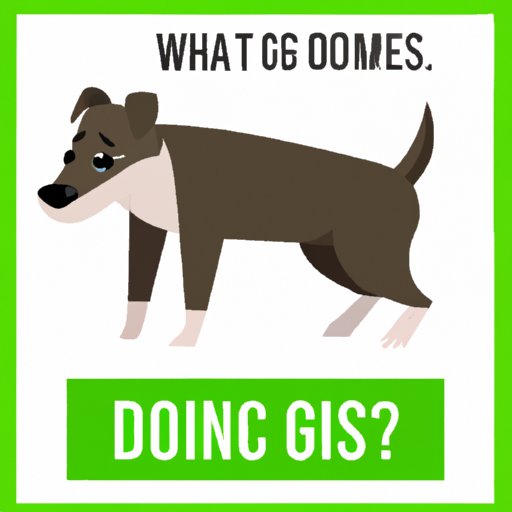
What Can You Give Constipated Dogs?
As a dog owner, it can be distressing to see your furry companion struggling with constipation. Unfortunately, constipation is a common issue for dogs, but the good news is that it can be easily treated and often prevented with some simple changes. In this article, we’ll explore various remedies and techniques that can help relieve constipation in dogs.
Diet Changes
The first area to focus on when treating constipation in dogs is their diet. A balanced diet that promotes good digestive health can help prevent constipation from occurring. Dogs should have a diet that’s high in fiber and hydration. Fiber is a key element in promoting healthy bowel movements. Feeding your dog pumpkin puree can be a great way to increase fiber in their diet, as it’s packed with fiber-rich nutrients. A 200g serving of pumpkin puree can provide over 7 grams of fiber. Moreover, you need to ensure that your dog is drinking enough water daily to help move things along in his digestive tract.
It’s also important to note that feeding the right amount is critical in preventing constipation. Overfeeding your dog can put them at risk of becoming constipated. Thus, it’s important to have a regular feeding schedule and enforce portion control.
Probiotics
Probiotics are live microorganisms that can promote good digestive health in dogs. They can help prevent constipation by promoting a healthy balance of bacteria in the gut, which in turn speeds up digestion processes. Yogurt is a probiotic food that can help with constipation. It contains live cultures that aid in digestion. You can also find probiotic supplements designed specifically for dogs at your local pet store or online.
Exercise
Exercise is another important aspect that can help relieve constipation in dogs. Regular exercise can help keep your dog’s digestive system functioning smoothly. Exercise can help to stimulate bowel movements by increasing gastrointestinal motility. Therefore, walking your dog for 30 minutes a day can help keep your furry friend healthy both physically and mentally.
Viscous Liquids
Viscous liquids, like mineral oil or olive oil, can be helpful in lubricating the digestive system. Lubrication can help ease bowel movements and prevent constipation. However, it’s important to be careful when giving your dog these liquids as they can pose risks if not administrated correctly. It’s suggested that you seek advice from your veterinarian before giving your dog liquid supplements.
Laxatives
Laxatives can be incredibly effective in helping dogs relieve constipation. Natural laxatives like apple cider vinegar and coconut oil can be given to dogs in small amounts. These synergize to increase hydration and add fiber to your dog’s diet, which can help to soften stools.
Herbal Remedies
Natural remedies, such as Chamomile or Dandelion root, can be gentle laxatives and help relieve constipation in dogs. These herbs have anti-inflammatory and antispasmodic properties that can soothe the digestive system and encourage bowel movements. It’s important to note that different dogs may react differently to these remedies, so you should consult with your veterinarian before you start using them.
Veterinary Treatments
If your dog is severely constipated, or if their constipation lasts for more than a few days, it’s time to take them to the veterinarian. The veterinarian may recommend different treatments depending on the severity of the constipation. They may perform an enema to help remove the stool, or they may prescribe medication to help relieve the constipation symptoms. Typically, veterinary treatment is an option when other home remedies and natural methods have failed to work.
Conclusion
Constipation in dogs is a common issue, but there are many ways to help prevent and treat it effectively. Improving your dog’s diet, increasing their hydration, and exercising regularly can be simple and effective ways to relieve constipation. Additionally, supplements, herbal remedies, and veterinary treatment can also help remedy the issue. If your dog experiences frequent constipation symptoms, you should take them to the vet for proper evaluation and treatment.




